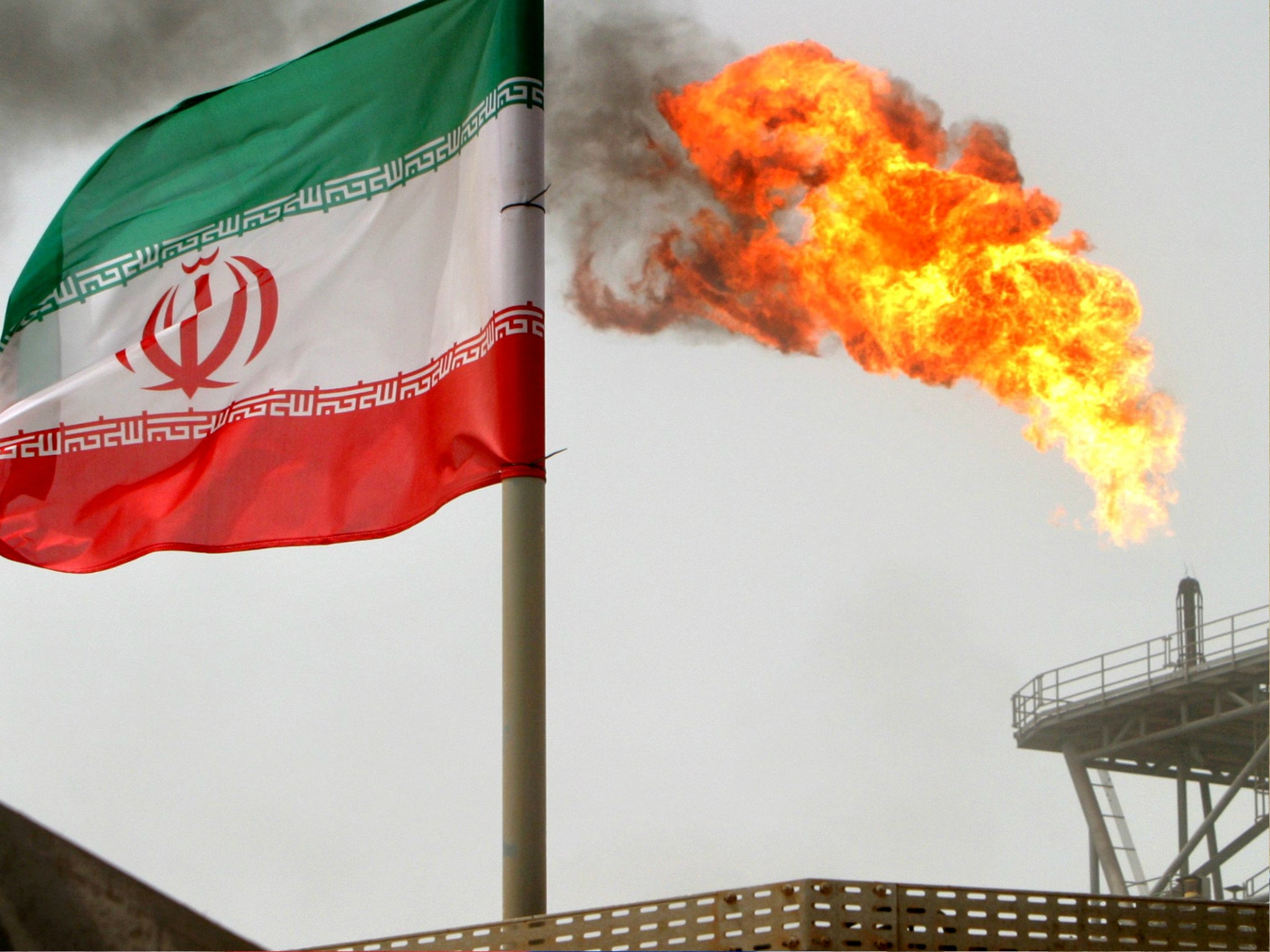Iran and Donald trump exchange barbs over higher oil prices and sanctions
'This is business Mr Trump, we though you knew it,' Iran's representative said

Your support helps us to tell the story
From reproductive rights to climate change to Big Tech, The Independent is on the ground when the story is developing. Whether it's investigating the financials of Elon Musk's pro-Trump PAC or producing our latest documentary, 'The A Word', which shines a light on the American women fighting for reproductive rights, we know how important it is to parse out the facts from the messaging.
At such a critical moment in US history, we need reporters on the ground. Your donation allows us to keep sending journalists to speak to both sides of the story.
The Independent is trusted by Americans across the entire political spectrum. And unlike many other quality news outlets, we choose not to lock Americans out of our reporting and analysis with paywalls. We believe quality journalism should be available to everyone, paid for by those who can afford it.
Your support makes all the difference.US President Donald Trump blamed the global oil export organisation for high oil prices, but Iran retorted it was the US leader’s fault for suddenly pulling away from the nuclear deal with the country.
Mr Trump, on his favoured platform of Twitter, said “oil prices are too high. Opec is at it again. Not good!” in reference to the Organisation of Petroleum Exporting Countries, of which Iran, many middle eastern countries, five African nations, and Venezuela is part.
It was Iran’s Opec representative, Hossein Kazempour Ardebili who said in a statement to Reuters: "You cannot place sanctions on two Opec founder members and still blame OPEC for oil price volatility”.
"This is business, Mr. President - we thought you knew it,” Mr Arbeili quipped.
Oil prices have increased approximately 60 per cent over the last year after Opec and Russia, another exporter, began reducing supplies in 2017.
The Iran nuclear deal was signed largely in part because six countries including Russia, China, France, Germany, the UK, and US were willing to reduce sanctions in exchange for Tehran halting development of its nuclear weapons programme.
The US pulled away from the agreement and planned to issue new sanctions on Iran. Mr Trump has also penalised Venezuela, amid its political turmoil as President Nicolas Maduro has refused to leave office and honour election results.
He has also placed Venezuelan citizens on his latest iteration of the travel ban.
As a result of the US action on the nuclear deal, European and Asian clients have stopped importing Iranian oil and have even ceased doing business with it.
Saudi Arabia is the largest Opec producer, Iran’s rival, and already increased production of oil for the year. The country supported Mr Trump’s decision about the agreement, unsurprising given its royal family’s collegial relationship with him.
Russia is the world’s largest oil producer. It is not in Opec is a party to the nuclear deal, has also increased its production.
In the US, gasoline pump prices nationwide have risen to near $3 a gallon during the peak summer travel season, still less than the $4 a gallon during the 2007-2009 Great Recession.
Gasoline demand has remained strong, rising to an estimated 9.9 million barrels per day as of last week, according to US Energy Department data.
Separately, a bipartisan group of lawmakers in the House was pushing legislation that would subject Opec to US antitrust law and fight what the group called artificial production controls.
The measure would have to pass the full House and the US Senate before Mr Trump could sign it into law. Past presidents have not supported similar bills when they have been proposed.
Opec meets 22-23 June in Vienna, and producers are seen as likely to raise production, perhaps before the limits are due to sunset at year-end.
Join our commenting forum
Join thought-provoking conversations, follow other Independent readers and see their replies
Comments